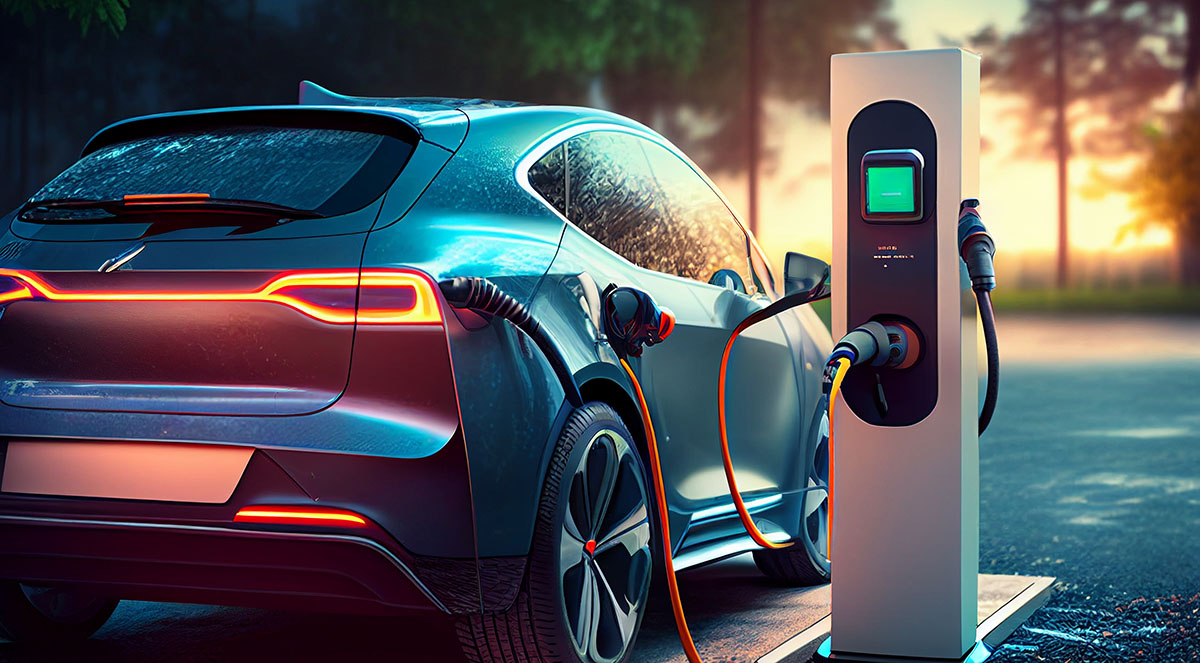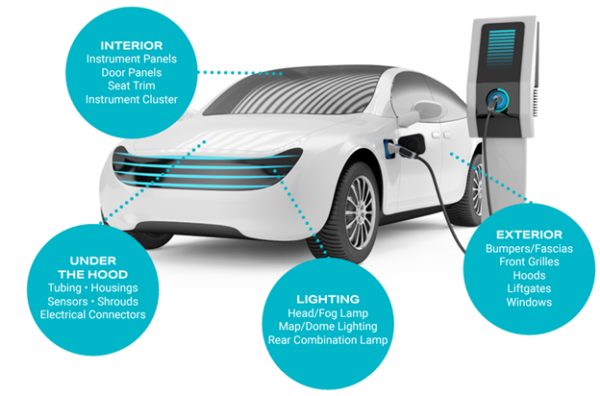From Metal to Plastic: Game-Changing Approach to Electric Vehicles

Craig Veeser, Automotive Manager at Formerra, shared insights on how the company innovates in the electric vehicle (EV) sector by replacing traditional metal components with advanced plastic materials.
The shift from metal to plastic in EV components enhances vehicle performance and brings significant economic and environmental advantages. Formerra’s approach to material innovation highlights the dual benefits of cost efficiency and sustainability, making a compelling case for the widespread adoption of plastic materials in the automotive industry.
Enhancing Electric Vehicle Efficiency and Sustainability
One of the benefits of transitioning from metal to plastic components in EVs is the reduction in energy consumption and greenhouse gas emissions. Lighter vehicles, which result from using plastic materials, require less energy to operate, further enhancing the overall cost-effectiveness of EVs. The simplified manufacturing process also reduces the energy needed for production, contributing to a smaller carbon footprint.
Moreover, manufacturers can recycle and reuse plastic materials, supporting the circular economy. By supplying materials with PCR content, Formerra helps reduce plastic waste and promotes sustainable practices within the industry.
According to Veeser, Formerra’s commitment to sustainability is integral to its mission. The company aims to provide innovative material solutions that enhance performance while minimizing environmental impact.

Plastic parts in advanced mobility. Taken from Formerra’s Application Bulletin: Polymer Solutions for Automotive.
Cost Efficiency in EV Manufacturing
The use of plastic components in EVs offers substantial economic benefits for manufacturers and consumers alike. Plastics facilitate part consolidation, simplifying the manufacturing process by reducing the number of assembly steps and minimizing the need for post-processing. For example, instead of welding multiple metal parts to create an underbody plate, Formerra has helped customers develop and injection mold a complete plate in one piece. This approach not only eliminates additional welding but also reduces assembly time and associated costs.
Plastic components significantly reduce the weight of EVs, which directly improves the vehicle’s range and energy efficiency. This weight reduction helps manufacturers lower material costs and speed up production, while consumers benefit from reduced operational costs, increased range, and lower maintenance needs, making EVs more cost-effective and efficient to operate.
Promoting Recyclability and End-of-Life Management
One of the most frequent questions of plastics industry is about the recyclability and end of life management of plastics components, in the case of Formerra, the company prioritizes the recyclability of plastic components and focuses on effective end-of-life management strategies. By educating clients and their supply chains about recycled-content materials they offer, such as post-consumer recycled (PCR) plastics, Formerra is helping to reduce the environmental impact of EV production. These recycled-content materials not only meet performance standards but also align with the sustainability goals of Original Equipment Manufacturers (OEMs). The expanding supply of PCR materials enables the industry to reclaim plastics from the waste stream and reintroduce them into the production cycle, reducing the amount of plastic waste that ends up in landfills.
Challenges in Metal-to-Plastic Transition
Read also Nylon Replacing Metal Won an SPE Automotive Award.
